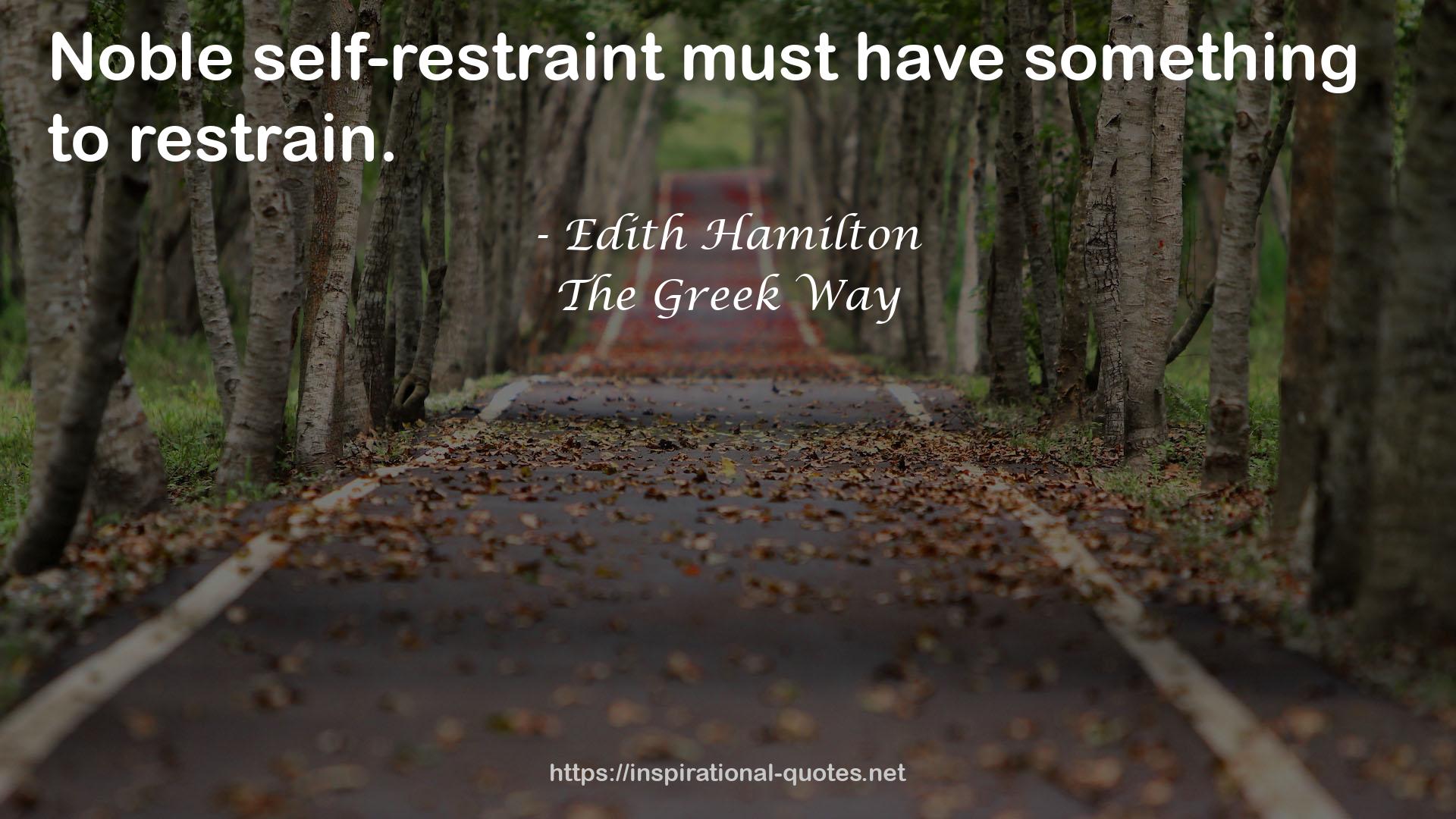11
" Egypt is a fertile valley of rich river soil, low-lying, warm, monotonous, a slow-flowing river, and beyond the limitless desert. Greece is a country of sparse fertility and keen, cold winters, all hills and mountains sharp cut in stone, where strong men must work hard to get their bread. And while Egypt submitted and suffered and turned her face toward death, Greece resisted and rejoiced and turned full-face to life. For somewhere among those steep stone mountains, in little sheltered valleys where the great hills were ramparts to defend, and men could have security for peace and happy living, something quite new came into the world: the joy of life found expression. Perhaps it was born there, among the shepherds pasturing their flocks where the wild flowers made a glory on the hillside; among the sailors on a sapphire sea washing enchanted islands purple in a luminous air. "
― Edith Hamilton , The Greek Way
17
" The Greeks were the first people in the world to play, and they played on a great scale. All over Greece there were games, all sorts of games; athletic contests of every description: races—horse-, boat-, foot-, torch-races; contests in music, where one side out-sung the other; in dancing—on greased skins sometimes to display a nice skill of foot and balance of body; games where men leaped in and out of flying chariots; games so many one grows weary with the list of them. They are embodied in the statues familiar to all, the disc thrower, the charioteer, the wrestling boys, the dancing flute players. The great games—there were four that came at stated seasons—were so important, when one was held, a truce of God was proclaimed so that all Greece might come in safety without fear. There “glorious-limbed youth”—the phrase is Pindar’s, the athlete’s poet—strove for an honor so coveted as hardly anything else in Greece. An Olympic victor—triumphing generals would give place to him. His crown of wild olives was set beside the prize of the tragedian. Splendor attended him, processions, sacrifices, banquets, songs the greatest poets were glad to write. Thucydides, the brief, the severe, the historian of that bitter time, the fall of Athens, pauses, when one of his personages has conquered in the games, to give the fact full place of honor. If we had no other knowledge of what the Greeks were like, if nothing were left of Greek art and literature, the fact that they were in love with play and played magnificently would be proof enough of how they lived and how they looked at life. Wretched people, toiling people, do not play. Nothing like the Greek games is conceivable in Egypt or Mesopotamia. The life of the Egyptian lies spread out in the mural paintings down to the minutest detail. If fun and sport had played any real part they would be there in some form for us to see. But the Egyptian did not play. “Solon, Solon, you Greeks are all children,” said the Egyptian priest to the great Athenian. "
― Edith Hamilton , The Greek Way

